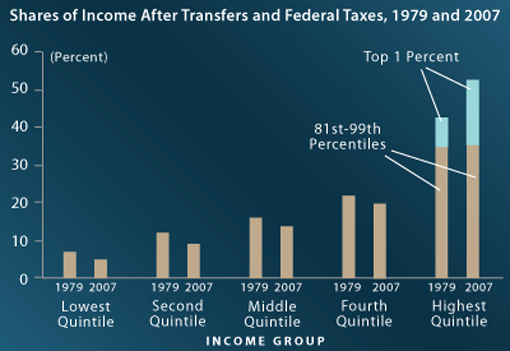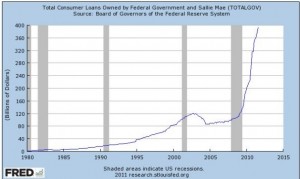“As a result of his efforts, Godfather’s Pizza sales were reduced from $275 million in 1986 to $242.5 million in 1988.” — Herman Cain’s Wikipedia bio
Herman Cain is touting is business management experience as his chief qualification to be President, but Susan Saulny writes for the New York Times that managing Cain is like managing a herd of cats.
But interviews with Mr. Cain’s former staff members, volunteers and supporters give a glimpse of a candidate who appeared to show ambivalence toward basic campaign management, which led to problems in hiring, scheduling, fund-raising and messaging.
Together, these problems are at odds with a central theme of his candidacy. Because Mr. Cain does not have a legislative or political track record, his campaign rests heavily on the contention that he would bring proven, executive-level expertise from the business world to the White House.
Ex-staffers also say that Cain maintains distance from his staff, who have been told to not speak to him unless spoken to.
Some former aides said they had longed to see the problem-solving side of Mr. Cain, or to see Mr. Cain at all. Over the spring and summer, he did not spend much time with workers. He did not plan conference calls or staff meetings and was given to changing his mind about appearances, sometimes with little notice, a tendency that angered his field workers.
“It was frustrating because we couldn’t get him here as much as I was led to believe he was going to be here,†said Kevin Hall, who worked for Mr. Cain in Iowa in June.
“Everything we tried to do was like pulling teeth to get accomplished,†said a former staff member in Iowa, who asked for anonymity. “I’ve never been involved in a job that was as frustrating as this one. We couldn’t get an answer on anything. Everything was fly by the seat of your pants.â€
This is actually standard behavior for CEOs in Corporation World. Most big companies don’t get things done because of the brilliant leadership of the head of the corporation. They get things done because over time they’ve put procedures in place that delegate responsibilities and that enable staffs to work together to accomplish complex tasks without having to re-invent the wheel every other day. Institutional memory helps, also, as do having competent employees in key positions far, far below executive level.
Wikipedia defines “business management” this way:
Management in all business and organizational activities is the act of getting people together to accomplish desired goals and objectives using available resources efficiently and effectively. Management comprises planning, organizing, staffing, leading or directing, and controlling an organization (a group of one or more people or entities) or effort for the purpose of accomplishing a goal. Resourcing encompasses the deployment and manipulation of human resources, financial resources, technological resources and natural resources.
What has Cain actually managed? In the 1980s he was in charge of 400 Burger Kings in Philadelphia for three years, and during his tenure his Burger Kings gained considerably in profitability. So Pillsbury promoted him by putting him in charge of Godfather’s Pizza, which he royally screwed up. Then he and some other upper-level executives bought Godfather’s from Pillsbury, and after that sales were steady, but when he resigned ten years later the business still wasn’t making as much money as it was making before Cain became CEO.
Then he was CEO of the National Restaurant Association, a lobbying group; chairman of the Federal Reserve Bank in Kansas City; and he sits on a number of corporate boards of directors. While all that makes for a respectable resume, and certainly requires him to have some control of an organization, I don’t see that he’s had much success with enterprises that involve complex logistics, and he doesn’t seem to have ever been part of a team that produced anything tangible, like a new model of toaster.
In my experience, CEOs rarely come up through the ranks of production, manufacturing or engineering. They come from finance, advertising, marketing. They make decisions about money, sales, acquisitions. Often they have only a vague idea how the products their company sells actually get made. Nor do they care. As a rule they don’t deal with employees below the upper management level. Often they aren’t even that bright; they’re just really aggressive and narcissistic and intimidate everyone around them into obedience. Their success often depends on the quality of the staffs they assemble around them who take care of the details, like actually managing.
That’s a generalization, of course, and I’m sure there are exceptions. Most of my experience with them comes from dealing with CEOs who had written books, and I was the editorial production manager responsible for getting the manuscript edited, typeset, printed, and bound. So they had to deal with a peon like me. There was only one author in my how-to-succeed-in-business group who was a nice guy, but he wasn’t a CEO but a consultant who specialized in taking over failing companies and turning them around. He cleaned up after the standard CEO type had crashed and burned, in other words. I could tell he was a good manager, because he respected the process. He did what I asked him to do and kept to the schedule.
My other CEOs thought the schedule was a nuisance, but they still expected their books to be published when they wanted them published. We underlings were magically supposed to make up for the time they lost.
Talk to just about anybody who has worked in the product development, engineering, production, or manufacturing department of a big corporation, and they’ll tell you the same thing. The people at the head of the company were completely cut off from the process of making the products and getting them on the shelves. Their only involvement with products is to declare they want X product on the shelves in 3 months, even though the process would normally take 9 months. They don’t care, and nobody ever says no to them. So the little ants in the cubicle farm spend the three months working 12-hour days and cutting every corner in creation, praying that nobody makes a mistake and orders bottle caps that don’t fit the bottles.
From the beginning I’ve suspected that Cain was that sort of CEO, the type who “manages” by barking out an order and expecting his underlings to figure out how to give him what he wants. You could see the same trait in G.W. Bush, who seemed to think that declaring an intention to do something was the same thing as actually doing it.
Cain’s campaign staff is stymied at every turn over what ought to be simple tasks, like acquiring an email address or having bumper stickers made. He needs to hire someone to manage that, and apparently he hasn’t, and he is too disorganized to do it himself.
You could argue that a President doesn’t have to know how toasters get made, either. But the interesting thing about a President is that they actually have less power in their organization that CEOs do in theirs. If a future CEO-president ever tries to run the country like they run corporations, by capriciously barking out orders and expecting the underlings to carry them out (which, I understand, is how Rick Scott is trying to govern Florida), he’ll be in for a shock.



